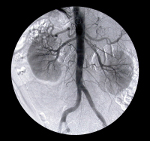How the Kidneys Work and What Happens When They Don't
Author: tiger Published Under: Health

In the body, the kidneys, which are located on the lower back, are responsible for filtering the fluids in our body and are essential for transferring waste out of our body. There are two kidneys in the body, with each being compromised of millions of nephrons that are responsible for helping to filter out waste products, as well as preforming a number of other very important tasks.
Extracellular fluid is used throughout the body and is what helps to contain the cells that make up our body. Blood plasma is one example of an extracellular fluid, which is transferred throughout the body by our heart. While the kidneys are essential for transferring waste out of the body, their main role is actually to help filter these types of fluids, such as plasma, and ensure it is made up of the right elements. Not only do the kidneys help filter these fluids, regulating levels of nutrients and salts, but they also help ensure that the right amount of fluid is in the body. They are also crucial in the regulation of the levels of salt, calcium, potassium, and other important nutrients.
A number of hormones are used by the body to help motivate the kidneys and spur them into action. For example, during dehydration, the brain will produce a hormone that causes the kidneys to produce less urine in a more concentrated form, which helps conserve water. This is one reason that the urine of someone who is dehydrated will be much darker in color than someone who is well hydrated. Similarly, the amount of salt that is passed out of the body is related to how hydrated the person is.
The kidneys also are a crucial component involved with the creation of Vitamin D and also create several important hormones, which helps to promote bone marrow growth, as well as regulating blood pressure.
What Happens When the Kidneys Stop Working?
There are many factors that can cause a kidney to stop working, or fail, which can have a major impact on the health of the individual. Often, kidney failure is the result of medications, but it can also be caused by disease, as well as blocked urine flow.
One of the most common problems to occur during kidney failure is that the amount of urine that is output drops dramatically, while toxins build up in the blood stream.
There are two types of kidney failure, chronic and acute, with the latter being reversible, sometimes clearing up in only a few weeks, while the former typically not being reversible. Symptoms of kidney failure usually show up when the kidney is at about 66% functionality and by the time it drops to around 15% functionality, it will be necessary to receive a kidney transplant or use dialysis, which is a medical process used to simulate the duties of a healthy kidney.
Since most of those with Kidney problems do not know it right away, the figures on how many people suffer from related disorders is questionable at best. Usually, figures include only those in the final stages of kidney failure, who are on dialysis or waiting for a kidney transplant. It is estimated that only 10% of those suffering from chronic kidney failure are aware they are at risk.